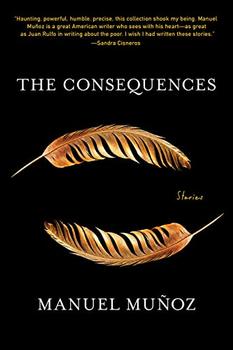Summary | Excerpt | Reviews | Beyond the Book | Read-Alikes | Genres & Themes | Author Bio

Stories
by Manuel MunozThis article relates to The Consequences
In Manuel Muñoz's The Consequences, the story "Susto" describes a man's disturbed psychological state after he discovers a dead body in a field. The Spanish word "susto" can be translated into English as "fright," but it also refers to an illness associated with certain Hispanic and Indigenous populations in Latin America and the Southwestern United States. It is sometimes referred to as "fright sickness" or "soul loss." While there are regional variations in how exactly susto is defined, it is generally a condition believed to be brought on by a traumatic event, such as an accident, a near-death experience or the loss of a loved one, and is also sometimes thought to have supernatural causes. Possible symptoms include trouble sleeping, extreme anxiety, crying, agitation and listlessness.
Susto is often considered a folk illness or "culture-bound" syndrome, meaning an affliction that is dependent on cultural contexts, and of which medical practitioners outside of those contexts have limited understanding. Like some other conditions described as culture-bound, such as "hikikomori," a Japanese term for people living in isolation, its specificity to a particular population has been disputed, but it nevertheless has strong cultural significance. It is also a widely accepted phenomenon that is included in the DSM (Diagnostic and Statistical Manual of Mental Disorders) and may coexist with other psychological conditions, such as major depression and PTSD.
According to an entry in The Encyclopedia of Clinical Psychology by Susan C. Weller, PhD and Ana C. Triana, MD, "There is often a tendency to try to translate culture-bound syndromes into equivalent psychological or disease-based biomedical categories, but…the culture-bound syndrome susto is not a catch-all for psychological complaints. Rather it is like any illness in that it consists of a coherent constellation of causes, symptoms, and treatments with shared agreement across populations."
In Muñoz's story, the main character is a foreman working in a vineyard who comes upon the dead body of an older Mexican man. After this experience, he has trouble sleeping and believes that he sees the dead man watching him outside of his house. The foreman is implied to not be Mexican himself, and a Mexican woman who works in a local bakery attempts to help him understand his symptoms: "Susto … You know what that is? … A scare … But in your soul, deep down." As the foreman learns more about the man who died, it becomes clear that he has some things in common with him, and he is led to reflect on a loss that he experienced years earlier.
Treatments for susto vary regionally and may involve any combination of therapies that can be administered at home, herbal or other remedies given by traditional healers, and prayer. In Mexico, susto may be treated professionally by a psychologist or psychiatrist. Cleansing rituals are used in Guatemala. Among some Mexican Americans, treatments believed to be effective have been observed to be more individualized, and susto may be expected to clear up on its own.
While susto is often thought to be caused by a single traumatic occurrence, a 1984 study found that people suffering from the condition were more likely than others to have struggled with social stress and expectations. In Muñoz's story, the afflicted foreman and the man who died each appear to have lived an isolated life after the end of a relationship. Throughout The Consequences, Muñoz explores the inner worlds of characters who feel lost or out of place within their communities.
Filed under Medicine, Science and Tech
![]() This article relates to The Consequences.
It first ran in the October 19, 2022
issue of BookBrowse Recommends.
This article relates to The Consequences.
It first ran in the October 19, 2022
issue of BookBrowse Recommends.
Your guide toexceptional books
BookBrowse seeks out and recommends the best in contemporary fiction and nonfiction—books that not only engage and entertain but also deepen our understanding of ourselves and the world around us.